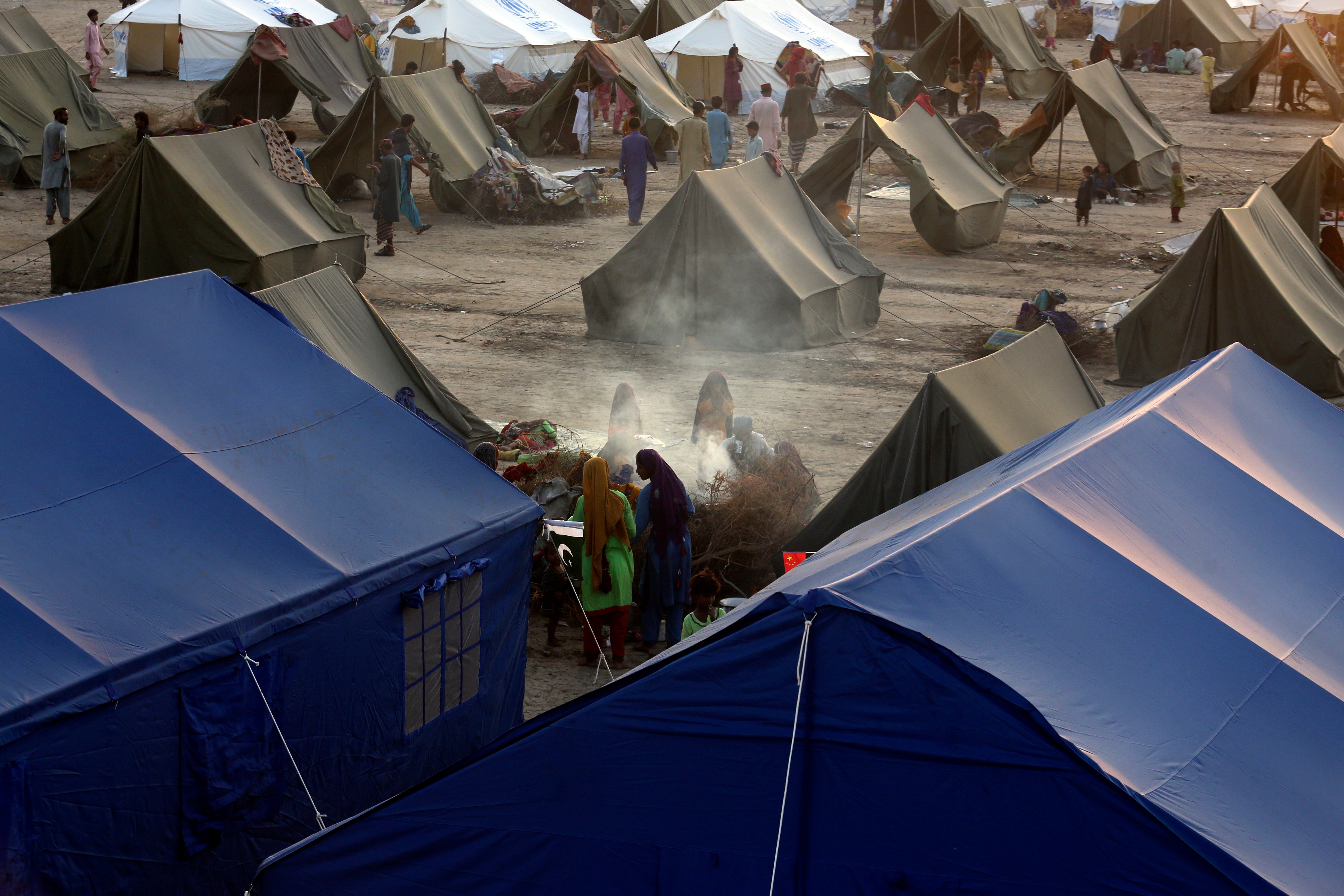Aid for flood victims arrives in hard-hit Pakistani province
Two more U.S. military planes loaded with tons of aid for Pakistanis affected by flooding from deadly monsoon rains have landed in southern Sindh province

Your support helps us to tell the story
From reproductive rights to climate change to Big Tech, The Independent is on the ground when the story is developing. Whether it's investigating the financials of Elon Musk's pro-Trump PAC or producing our latest documentary, 'The A Word', which shines a light on the American women fighting for reproductive rights, we know how important it is to parse out the facts from the messaging.
At such a critical moment in US history, we need reporters on the ground. Your donation allows us to keep sending journalists to speak to both sides of the story.
The Independent is trusted by Americans across the entire political spectrum. And unlike many other quality news outlets, we choose not to lock Americans out of our reporting and analysis with paywalls. We believe quality journalism should be available to everyone, paid for by those who can afford it.
Your support makes all the difference.Two more U.S. military planes loaded with tons of aid for Pakistanis affected by flooding from deadly monsoon rains landed Sunday in southern Sindh province, one of the worst-affected regions in the impoverished country.
Saif Ullah, spokesman for the country's Civil Aviation Authority, said each plane was loaded with about 35 tons of relief aid that would be distributed in the province by the World Food Program. The aircraft landed at Sukkur Airport in Sindh and Ullah said the U.S. operation that began Thursday would continue until Sept. 16.
Pakistan has suffered under extremely heavy monsoon rains that started early this year — in mid-June. Multiple officials and experts have blamed the rains and resulting floodwaters on climate change. U.N. Secretary-General Antonio Guterres last week called on the world to stop “sleepwalking” through the dangerous environmental crisis. He has called repeatedly on the international community to send massive amounts of aid to Pakistan.
Ullah said Sunday that two more flights bringing relief goods from the United Arab Emirates landed at Karachi airport. So far, U.N. agencies and several countries have sent multiple planeloads of aid, and authorities say the UAE has been one of the most generous contributors.
Near 1,400 people have been killed, 13,000 injured and millions left homeless by the heavy flooding since mid-June. The waters also destroyed road and communications infrastructure.
Miles of cotton and sugarcane crops, banana orchards and vegetable fields could be seen submerged in floodwaters. Thousands of mud and brick homes caved in under the deluge leaving people homeless and sheltering in tents alongside damaged roads.
Pakistan's military chief Gen. Qamar Jawed Bajwa toured the badly affected district of Dadu in Sindh and its surroundings on Saturday. Dadu could suffer further flooding from the rising waters of the Indus River.
“People will continue to suffer if we don't have a drainage system and dams,” Bajwa told reporters.
He said constructing dams would help produce electricity, curb pollution and decrease global warming and that army engineers have been asked to conduct an initial study.
Bajwa said working on alternate energy sources is essential and called for the gradual reduction of oil and coal as energy sources to minimal levels.
Since June, heavy rains and flooding have added a new level of grief to cash-strapped Pakistan and highlighted the disproportionate effect of climate change on impoverished populations.
Experts say Pakistan is responsible for only 0.4% of the world’s historic emissions that are blamed for climate change. The U.S. is responsible for 21.5%, China for 16.5% and the European Union for 15%.
___
Associated Press writer Asim Tanveer in Multan, Pakistan contributed.